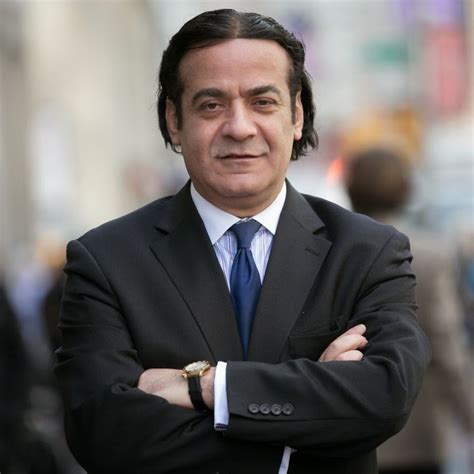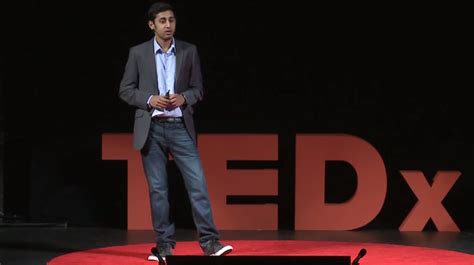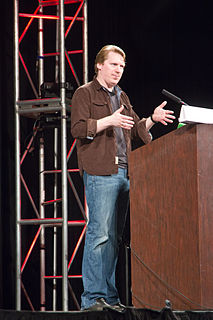Top 1200 Social Innovation Quotes & Sayings - Page 3
Explore popular Social Innovation quotes.
Last updated on December 4, 2024.
The personal computer was a disruptive innovation relative to the mainframe because it enabled even a poor fool like me to have a computer and use it, and it was enabled by the development of the micro processor. The micro processor made it so simple to design and build a computer that IB could throw in together in a garage. And so, you have that simplifying technology as a part of every disruptive innovation. It then becomes an innovation when the technology is embedded in a different business model that can take the simplified solution to the market in a cost-effective way.
In the late 60s, 70s and possibly early 80s, social scientists were interested in researching the diffusion of innovation and studying the link between applied research and policy and program development. Recently there has been less interest in these issues and we feel that this interest must be rekindled.
It's impossible to have a coin with only one side. You can't have heads without tails. Innovation is like that. Initiative is like that. Art is like that.
You can't have success unless you're prepared to have failure.
As soon as you say, 'failure is not an option,' you've just said, 'innovation is not an option.'
Once you have an innovation culture, even those who are not scientists or engineers - poets, actors, journalists - they, as communities, embrace the meaning of what it is to be scientifically literate. They embrace the concept of an innovation culture. They vote in ways that promote it. They don't fight science and they don't fight technology.
In Dublin, we open The Dock, our new multidisciplinary innovation R&D and incubation hub where all elements of our innovation architecture come to life. The Dock is a launch pad for our more than 200 researchers to innovate with clients and acquisition partners with a particular focus on artificial intelligence.
Cloud is so important because it enables digital transformation. It underpins disruptive new technologies in social, mobile, and analytics - and it is enabling industry leaders to compete in digital. Innovation is happening in the cloud - and cloud gives companies the speed and flexibility to be much more agile.
Innovation is fostered by information gathered from new connections; from insights gained by journeys into other disciplines or places; from active, collegial networks and fluid, open boundaries. Innovation arises from ongoing circles of exchange, where information is not just accumulated or stored, but created. Knowledge is generated anew from connections that weren't there before.
We're just trying to end illegitimate government support for a single technology, which is un-American. We should be leading the world in the next generation of technological innovation. But we can't unleash private capital because of what the government is doing to stifle innovation and to choke competition.
Innovation is doing something in a different way, but it also has a subtext: When there's an established way, and that way is considered the best practice and how it's traditionally been done, innovation comes by and says 'Let's try a different approach.' It doesn't need to be big or company-wide - it could be a single thing.
When your focus is social change and not financial change why wouldn't you want to share that openly? Innovation only succeeds when it's shared. If you're a pioneer and you come up with something that can change the world and you turn round and say 'I'm not going to share this idea with anyone' then you only impact the few and not the many.
Making loans and fighting poverty are normally two of the least glamorous pursuits around, but put the two together and you have an economic innovation that has become not just popular but downright chic. The innovation - microfinance - involves making small loans to poor entrepreneurs, usually in developing countries.
Sustaining innovation is the lifeblood of any enterprise. It is the time when we capitalize upon, and recover from, all the disruptive change prior. Most of the operating profits in the world come from sustaining innovation. Much of the market capitalization gains, on the other hand, come from disruptive innovations.
All over the world, social innovation is tackling some of the most pressing problems facing society today - from fair trade, distance learning, hospices, urban farming and waste reduction to restorative justice and zero-carbon housing. But most of these are growing despite, not because of, help from governments.
For one to be free there must be at least two. Freedom signifies a social relation, an asymmetry of social conditions: essentially it implies social difference--it presumes and implies the presence of social division. Some can be free only in so far as there is a form of dependence they can aspire to escape.
When counting on learning from innovation, there are great successes but also failures. The Wright Brothers invented the aircraft and started an amazing process of innovation, where we now have planes that carry 500 passengers. Along the way there were some silly looking vehicles that crashed early on.























































